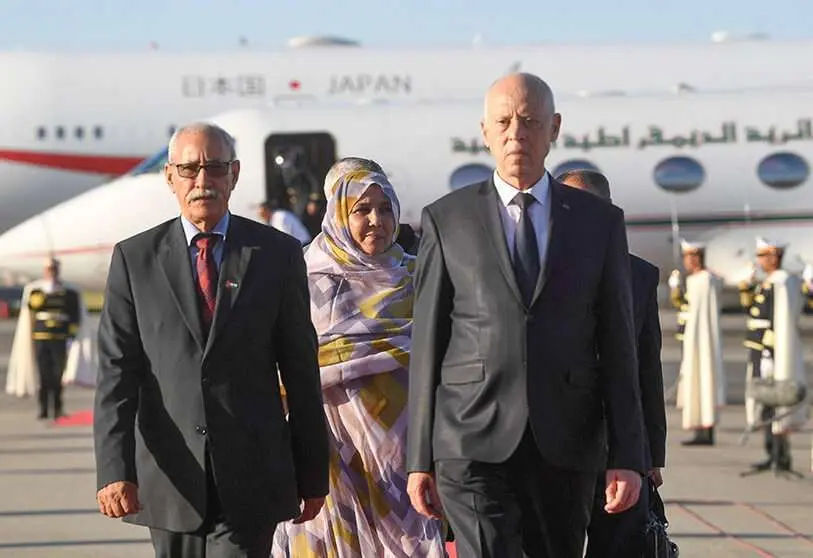Dangerous tension in the Maghreb

Just when some gestures were pointing to a reduction in tension in North Africa, it turns out that there is no truce and a country like Tunisia, calculatedly neutral in the Sahara conflict between Morocco and Algeria, has made a serious mistake by antagonising Rabat. Beyond the fact that the Sahara is a sacred issue for the Moroccans, Tunisian President Kais Saied's mistake lies in personally inviting and receiving at the airport Brahim Ghali, leader of the Polisario Front which, since November 2020, has become an armed aggressor group against Morocco after breaking the 1991 truce. He is not only the leader of a separatist organisation, he is responsible for Morocco's armed attacks in the Sahara, however sporadic, but there is a serious risk that it is in someone's interest to increase their capacity.
Tunisian political analysts and representatives of various political parties have commented that the decision to receive Ghali is due to Algerian pressure that has blackmailed President Saied over the flow of gas and electricity, and call for a return to a policy of neutrality on the Sahara and a return to the traditional good relations between Tunisia and Morocco. Japan's own foreign minister, the promoter of the TICAD symposium with African countries, assured that "the presence of any suspicious entity in this room with us, which Japan does not recognise as a country, does not change Japan's position on this entity".
Algeria dangerously increases tension in the Maghreb at a time when the apparent reconciliation with France following President Macron's visit represents a great opportunity to move closer to Europe, on which it depends economically and commercially, and away from a toxic ally such as Putin's Russia. Macron avoided the Algerian president's trap on the Sahara and affirmed that officially the issue had not been discussed. This is confirmed in the Algiers Declaration, which represents a renewed partnership between the two countries. Undoubtedly, what is most relevant is what we do not know and that, in all matters, will be known in time. Macron, just as the German foreign minister, the green Annalena Baerbock, did almost at the same time in Rabat, expressed her deep concern about Russian activity in the Sahel. Baerbock said the same thing that the Spanish, Portuguese, Dutch and other European, American, African and Arab governments have said about the good option of the autonomy plan for the Sahara under Moroccan sovereignty presented by Rabat in 2007, which in recent months has attracted a great deal of significant international support.
The Algerian military-political government is only trying to punish Spain and now it has Tunisia on the back foot.

